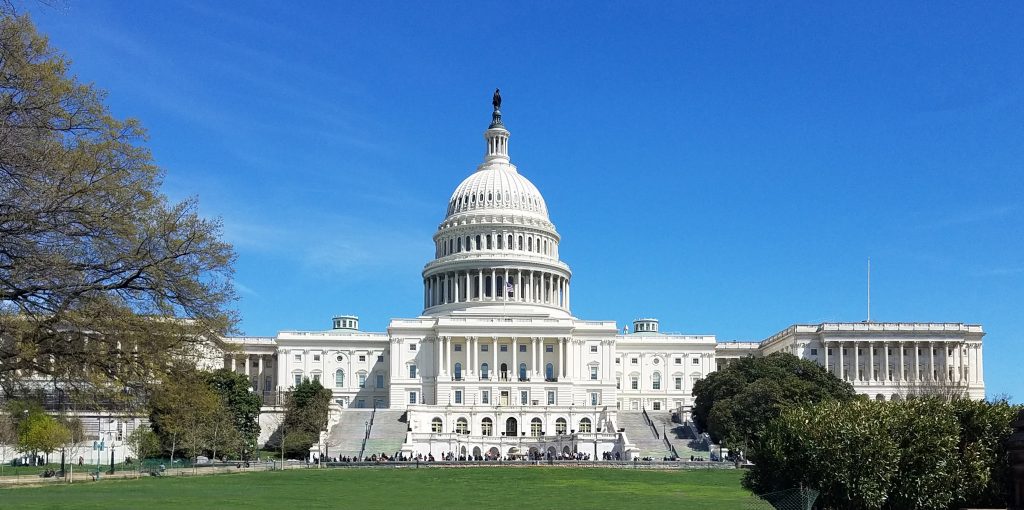
ITEP's Research Priorities
- 2025 tax debate
- Blog
- Cannabis Taxes
- Corporate Taxes
- Corporate Taxes
- Earned Income Tax Credit
- Education Tax Breaks
- Estate Tax
- Federal Policy
- Fines and Fees
- Georgia
- Immigration
- Income & Profits
- Income Taxes
- Inequality and the Economy
- ITEP Work in Action
- Local Income Taxes
- Local Policy
- Local Property Taxes
- Local Refundable Tax Credits
- Local Sales Taxes
- Maps
- Media Quotes
- News Releases
- OBBBA
- Other Revenues
- Personal Income Taxes
- Property & Wealth
- Property Taxes
- Property Taxes
- Publications
- Refundable Tax Credits
- Sales & Excise
- Sales, Gas and Excise Taxes
- Sales, Gas and Excise Taxes
- SALT Deduction
- Select Media Mentions
- Social Media
- Staff
- Staff Quotes
- State Corporate Taxes
- State Policy
- State Reports
- States
- Tax Analyses
- Tax Basics
- Tax Credits for Workers and Families
- Tax Credits for Workers and Families
- Tax Guide
- Tax Principles
- Tax Reform Options and Challenges
- Taxing Wealth and Income from Wealth
- Toolkits
- Trump Tax Policies
- Video
- Webinar
- Who Pays?

It’s that time of year again. Members of Congress and the White House are negotiating the federal budget. Winter temperatures are unpredictable due to climate change. And news outlets, organizations and others are releasing end-of-year lists and the tax wonks at ITEP are joining the chorus. If you’re lucky enough to have some time off over the next couple of weeks or find yourself curling up on the couch this winter in need of a way to pass the time, the tax policy wonks at ITEP have compiled a winter reading/listening list that will appeal to wonks and non-wonks alike.
Voices for Utah Children: Response to Govenor’s Budget Recommendations FY2020
December 17, 2018
As a percent of income, 95% of Utah’s families pay more in sales and other local taxes than the top 5% of higher income families.
Georgia Budget & Policy Institute: Increase the State Tobacco Tax for Healthier Georgia
December 15, 2018
Georgia could raise more than $400 million a year to make critical investments for the health and well-being of Georgia residents by raising the cigarette tax by at least $1 per pack. Georgia has the third-lowest state cigarette tax rate out of the 50 states and the District of Columbia. At 37 cents per pack, it falls far below the national average of $1.72. Over the past decade, many states have increased tobacco tax rates as a way to raise new revenue while reducing smoking rates and the health care costs associated with smoking. Georgia has not increased its cigarette…
The Federal Estate Tax: An Important Progressive Revenue Source
December 6, 2018 • By ITEP Staff

For years, wealth and income inequality have been widening at a troubling pace. One study estimated that the wealthiest 1 percent of Americans held 42 percent of the nation’s wealth in 2012, up from 28 percent in 1989. Lawmakers have exacerbated this trend by dramatically cutting federal taxes on inherited wealth, most recently by doubling the estate tax exemption as part of the 2017 Tax Cuts and Jobs Act. Further, lawmakers have done little to stop aggressive accounting schemes designed to avoid the estate tax altogether. This report explains how the percentage of estates subject to the federal estate tax…
Housing for All? Developers Bulldoze Taxpayers in Affordable Housing Debate
December 4, 2018 • By Monica Miller

Affordable housing advocates across the nation are attempting to address the problem at the local level, but they often face political and community opposition. These challenges are currently playing out in Baltimore, which is turning into a case study in how the best-planned civic interventions run into tough road blocks when it comes to tax increases versus moneyed special interest who seek to block those tax increases.
New Mexico Voices for Children: The Cliff Effect: One Step Forward, Two Steps Back
November 29, 2018
This report focuses on the cliff effect that occurs with the loss of child care assistance for New Mexico families. Losing child care assistance is especially detrimental to families because the cost of child care is so high. High-quality child care costs more than tuition and fees at New Mexico’s 4-year public universities, so it is an expense that even middle-income families struggle to meet. This report looks at the intensity of the child care cliff effect in New Mexico, as well as problems with income eligibility ceilings and co-pays, and offers policy solutions to these problems.
Public Assets Institute: A Fairer Tax System Would Help Working Families
November 29, 2018
The report looks at how well states distribute taxes based on family incomes. In most states lower-income families pay a higher percentage of their income in state and local taxes than those at the top. That’s the definition of a regressive tax system. Vermont’s is one of the least regressive in the country.
The EITC Boosts Opportunities for Communities of Color
November 28, 2018
State and local taxes play an important role in shaping economic opportunity. These tax revenues pay for the schools, roads, parks, and libraries that create a foundation for thriving communities. Yet we know that Virginia’s state and local tax system is upside down. In Virginia, households with low and modest incomes pay a higher share of their incomes toward state and local taxes than the highest-income households. In tax policy terms, this is known as a regressive system. And since historical and present-day barriers for communities of color have resulted in stark differences in income by race, this means these…
GM Announcement Confirms Tax Cuts Don’t Prevent, May Encourage Layoffs
November 27, 2018 • By Matthew Gardner

GM’s most recent quarterly financial report reveals the company has saved more than $150 million so far this year due to last year’s corporate tax cuts. So the layoffs announcement may seem especially jarring to anyone who believed President Trump’s claim that his tax cuts would spur job creation—including the Ohio residents Trump told directly “don’t sell your homes” because lost auto-making jobs “are all coming back.”
Voices for Illinois Children November Newsletter
November 21, 2018
The Institute for Taxation and Economic Policy (ITEP) released the sixth edition of its “Who Pays?” report on state tax systems. Voices’ policy analyst John Gordon detailed the findings of the report in a blog post. Illinois ranks #8 among ITEP’s “Terrible Ten” in terms of regressive state tax systems.
Wisconsin Budget Project: Wisconsin’s Tax System Requires the Least from Those Who Have the Most
November 21, 2018
Wisconsin residents with the lowest incomes pay about a third more of their income in state and local taxes than the wealthiest residents, according to new figures from the Institute on Taxation and Economic Policy. The poorest 20% of Wisconsin residents—a group with an average income of $14,700—pays 10.1 cents out of every $1 of their income in state and local taxes on average. In comparison, the richest residents of Wisconsin, who have an average income of $1.2 million, pay just 7.7 cents out of every $1 in income in state and local taxes.
The Failure of Expensing and Other Depreciation Tax Breaks
November 19, 2018 • By Richard Phillips, Steve Wamhoff

Congress permitted full expensing only for five years, which will encourage businesses to speed up investments they would have made later. Republicans in Congress have discussed making the expensing provision permanent. This report argues that Congress should move in the other direction and repeal not just the full expensing provision but even some of the permanent accelerated depreciation breaks in the tax code, for several reasons.
Advancing Racial Equity With State Tax Policy
November 16, 2018
States and localities could do more to help undo the harmful legacies of past racism and the damage caused by continuing racial bias and discrimination. If state budget and tax policies were better designed to address these harms and create more opportunities for people of color, state economies would be more equitable and likely also would be stronger, which in turn could benefit many state residents of all backgrounds.
The Governor’s Proposed Personal Income Tax Cut: Who Wins and Who Loses?
November 15, 2018
Governor Asa Hutchinson proposed a personal income tax cut as part of his balanced budget plan for the 2019 legislative session, released on November 14.
Oregon Center for Public Policy: Oregon Can Raise $376 Million by Clamping Down on Offshore Corporate Tax Avoidance
November 15, 2018
Oregon can clamp down on multinational corporations shifting profits overseas, create a more level playing field for Oregon businesses, and raise millions in revenue by enacting “complete reporting” by large corporations. That law would make it difficult for multinational corporations to avoid Oregon corporate income taxes by artificially shifting profits earned in Oregon to subsidiaries located abroad.
Louisiana Budget Project: Tax Code Is Holding Louisiana Back
November 15, 2018
Years of efforts to reform Louisiana’s regressive and overly complicated tax code have run aground in the state Legislature. The result: Louisianans pay the second-highest sales taxes in the nation, while the tax code is riddled with costly exemptions and deductions. The state’s broken tax structure is a major reason why the state lurched from budget crisis to budget crisis over the last decade and has struggled to fund critical programs and services like higher education and health care. The Advocate’s editorial board shares its thoughts on the latest report from the Institute on Taxation and Economic Policy.
New 50-State Analysis: SALT Cap Repeal Would Be Costly, Mostly Benefit Top 1%
November 14, 2018 • By ITEP Staff
Repealing the 2017 tax law’s cap on state and local tax (SALT) deductions without replacing it with a different type of limit would pile one bad policy on top of the other, annually add $88 billion to the deficit-financed tax law, and mostly benefit the wealthy, a new 50-state analysis released today by the Institute on Taxation and Economic Policy reveals.

The cap on federal tax deductions for state and local taxes (SALT) that is in effect now under the Tax Cuts and Jobs Act (TCJA) is a flawed provision but repealing it outright would be costly and provide a windfall to the rich. Congress should consider replacing the SALT cap with a different type of limit on deductions that would avoid both of these outcomes. Using the ITEP microsimulation tax model, this report provides revenue estimates and distributional estimates for several such options, assuming they would be in effect in 2019.

Today Amazon announced major expansions in New York and Virginia, where it intends to hire up to 50,000 full-time employees. The announcement marks the culmination of a highly publicized search that lasted more than a year and involved aggressive courting of the company by cities across the nation. The following are three tax-related observations on the announcement.
15 Companies Report an Average 10.4 Percentage Point Drop in Effective Tax Rates Since 2017
November 13, 2018 • By ITEP Staff

Comparing the year’s first three quarterly filings of 2018 with those of 2017, we find that 15 of the largest Fortune 500 companies reported worldwide effective income tax rates declining by an average of 10.4 percentage points and by as much as 16 percentage points. In total these companies owed $22.3 billion less in taxes than they would have under their 2017 effective rates, saving an average of $1.5 billion each.
Tax Proposals Target Benefits to Those at the Top, Corporations
November 12, 2018
The Arkansas Legislative Tax Reform and Relief Task Force’s recommendations would make the state’s tax system even more regressive than it already is. According to a new analysis by Arkansas Advocates for Children and Families and the Institute on Tax and Economic Policy, the net overall impact of the combined recommendations would actually raise taxes on the neediest Arkansans. At the same time, it would target a bigger share of the decrease to those with the highest incomes.
Louisiana Budget Project: Race Equity and Taxes in Louisiana
November 9, 2018
Louisiana’s upside-down tax structure means the highest income-earners pay less than the poorest families, when measured as a percentage of income. The Institute on Taxation and Economic Policy’s “Who Pays” report lays this out in careful detail, and the latest edition breaks down the tax distribution by race. The conclusion: Black households pay a higher percentage of their income in state and local taxes than white households. Louisiana has work to do to make the tax structure fairer and reduce racial inequalities.
Louisiana Budget Project: Louisiana’s Regressive Tax Structure
November 5, 2018
Poor and middle-income families in Louisiana pay state and local taxes at a higher rate than the wealthiest families. That’s the key takeaway from the latest state-by-state breakdown of tax distribution by income groups from the Institute on Taxation and Economic Policy (ITEP). Louisiana’s tax structure is the 14th most regressive in the nation.
Comments to be delivered during IRS hearing on “Contributions in Exchange for State or Local Tax Credits” (REG-112176-18)
November 5, 2018 • By Carl Davis
ITEP views this proposal as a sensible improvement, and one that is actually overdue, to the way the charitable deduction is administered. At the end of my remarks I will discuss a few ways that the regulation could be improved. But the core point I want to emphasize is that the general approach taken here, where quid pro quo rules are applied in a broad-based fashion to all significant state and local tax credits, is the correct one.
Idaho Press: Economic Study Finds That Poor Idahoans Pay More State and Local Taxes Than Rich Ones
November 3, 2018
The biggest drivers of the inequality in Idaho are the sales and property taxes. In every bracket of income measured by the Institute’s report, the amount that families paid in state and excise taxes went down as their total income increased. The lowest-earning 20 percent spent twice as much of their annual income on property taxes as the highest 20 percent, with an average of 3.3 percent paid on their property compared to 1.6 percent.
